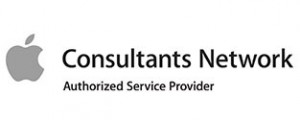 Having emerged as a serious threat only in the past few years, ransomware and its associated risks remain generally less well-known than other malware, leaving many businesses vulnerable to ransomware attacks. Simply put, Ransomware is a kind of malware that attempts to extort money from the infected user by locking the user out of individual files or his entire computer until payment is made. The threat that ransomware poses to businesses across industries is potentially staggering, and understanding the risks involved is key to preventing significant damage from a ransomware infection.
Having emerged as a serious threat only in the past few years, ransomware and its associated risks remain generally less well-known than other malware, leaving many businesses vulnerable to ransomware attacks. Simply put, Ransomware is a kind of malware that attempts to extort money from the infected user by locking the user out of individual files or his entire computer until payment is made. The threat that ransomware poses to businesses across industries is potentially staggering, and understanding the risks involved is key to preventing significant damage from a ransomware infection.
Insurance giant Beazley recently released a report detailing the effects of ransomware attacks across a variety of industries. Based on their findings, the threat of ransomware has grown rapidly in the past year, with four times the number of attacks in 2016 as compared with 2015; this trend is expected to continue into 2017 with attacks doubling again over the course of the year. A recent Symantec study uncovered that, beyond generally increasing in number, ransomware attacks are increasingly targeting corporations and business rather than individual consumers.
How might this increase in ransomware attacks affect your business? As Beazley notes, attacks tend to be concentrated during particular times of the year when companies are more vulnerable, such as during critical shopping periods, at the conclusion of fiscal quarters and at the time of IT system freezes. Preparing your business’ IT security to focus on protection during such critical periods can help limit your exposure to a crippling ransomware attack. Understanding your industry’s particular risk can also help you intelligently prepare for a ransomware infection. As Symantec notes, the services industry is the most targeted business sector, accounting for 38 percent of all ransomware attacks on companies; the manufacturing, public administration and finance, insurance and real estate sectors were also heavily targeted, making up 37 percent of attacks altogether.
Businesses across sectors can protect themselves from ransomware by keeping their security software and operating system up to date; software updates are frequently released that contain patches aimed at fixing newly-recognized security vulnerabilities that ransomware can exploit. Remaining vigilant with incoming emails is also key as email continues to be one of the most used infection methods. Delete suspicious emails without opening them, particularly if they contain attachments or links or ask you to enable macros to view the email’s content.
Ultimately, however, backing up any critical data necessary for the operation of your business is the single best way to guard against the ransomware threat. Ransomware attackers rely on your business’ need to recover important files that are held hostage by their malware, and having a backup copy of these files allows you to focus on removing the source of the infection without worrying about the loss of critical data.
Concerned that your current IT security leaves your company’s sensitive files exposed to a ransomware attack? The security experts at Oshawa, Toronto and Southern Ontario’s Alary Clinitech can help you understand the threats that your business


